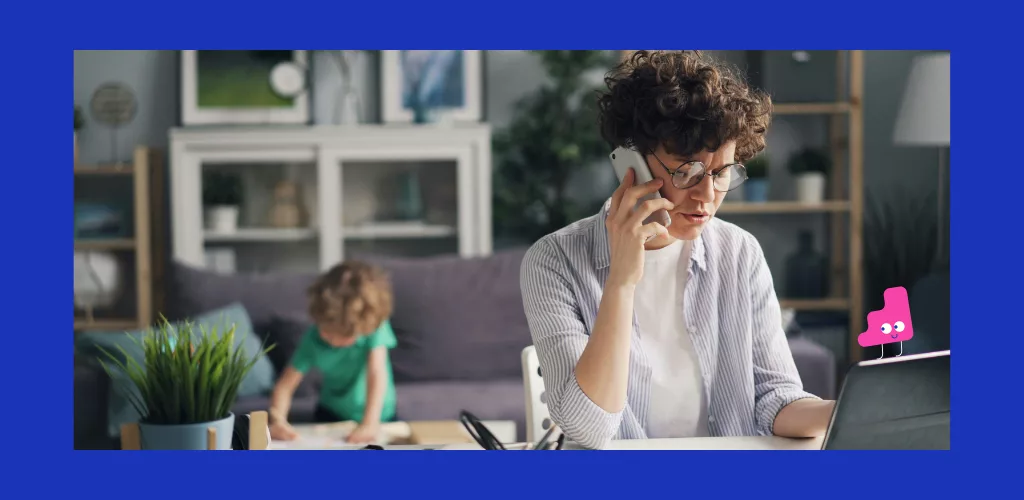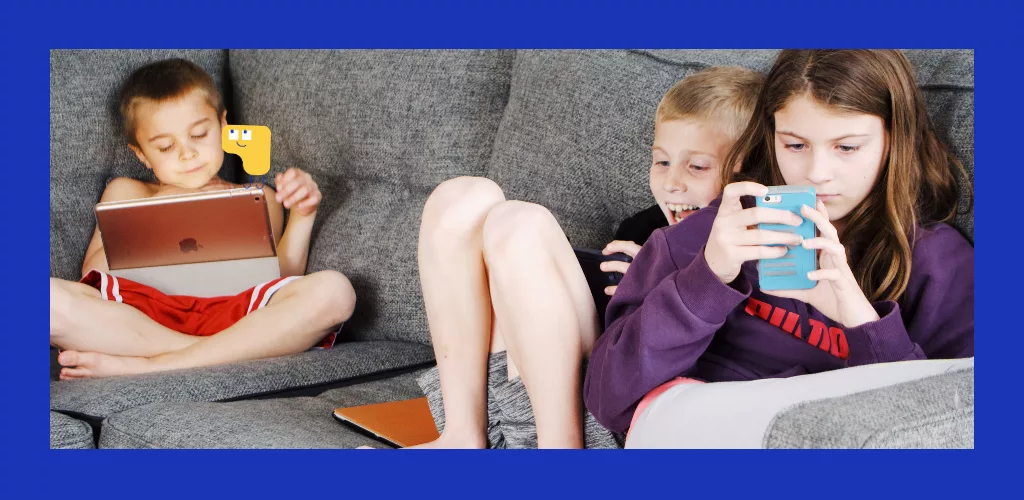Homework that drags on, lessons learned but forgotten the next day, children who spend hours on their notebooks with no results... Sound familiar?
The problem isn't that your child can't do it. It's thathe's never been taught to learn. At school, they're taught math, French, history... But rarely how their own brain works and how to use it effectively.
Yet learning to learn is a fundamental skill. A meta-skill that conditions all the others. And the good news? It can be worked on, developed and passed on.
This article gives you the practical keys to helping your child learn more effectively, more serenely and, above all, more independently.
Learning to learn: what is it really?
"Learning to learn is the ability for adults, children and teenagers to understand each other, to understand how their brains work and to adapt the way they learn according to their own functioning."
In concrete terms, this means :
-
Understanding how we memorize
-
Identify your strengths and weaknesses
-
Adapting work methods to different subjects
-
Knowing where to look for information
-
Developing critical thinking skills
-
Gaining autonomy
We also speak of metacognition the ability to reflect on one's own way of thinking and learning.
Why is this so important?
Because the school doesn't teach it. Or very little.
We ask our children to learn tons of information, but we rarely tell them how to do it. The result: some cope by intuition, others struggle without understanding why.
We'll ask them to do things, we'll explain why we do things, but not necessarily how.
And yet, this skill is essential for success at school and in life. Knowing how to learn means knowing how to adapt, evolve and learn throughout life.
Knowing yourself: the first step to better learning
Before talking about techniques, we need to get back to basics: does your child really know himself?
Does he know whether he retains better by listening, writing or visualizing?
Does he know when he concentrates best?
Does he know which subjects require more effort?
"The more a child knows about himself, the better he learns."
How can we help him get to know himself better?
1. Ask him questions
-
What helped you learn this lesson?
-
How do you feel when you do maths? And French?
-
At what time of day do you feel most efficient?
2. Let him try out different methods
Have him try out different approaches for the same lesson: written summary, drawing, audio recording, explanation to someone else... And observe together what works best.
3. Encourage reflection after the effort
After a test, an assessment or even a homework session, take the time to debrief:
-
What went well?
-
What was difficult?
-
What would you do differently next time?
This habit develops metacognition and autonomy.
Learning techniques that change everything
Now that we've laid the groundwork, let's get down to the nitty-gritty. There are methods validated by neuroscience that really improve memorization and comprehension.
Mind mapping: organize your ideas visually
Mind mapping is a technique for structuring information visually and logically, starting with a central idea and unfolding thematic branches.
Why does it work?
-
Involves several areas of the brain (visual, logical, creative)
-
It helps to see the links between ideas
-
Promotes long-term memory
"A child who constructs a mind map to review a history lesson will better understand the links between events and retain them more durably."
How do I use it?
-
To take notes in class
-
To review a lesson
-
To structure a presentation or essay
-
To organize a project
Your child can draw by hand (colors, drawings, symbols) or use suitable digital tools.
Spaced repetition: anchoring for the long term
Our brain naturally forgets. It's only natural. But there is a scientifically proven method to counteract this forgetting: spaced repetition.
The principle? Revise information at regular and increasingly frequent intervals:
-
Immediately after learning
-
The next day
-
One week later
-
One month later
"This technique transforms information into long-term memory."
In practical terms, this means that it's better to study for 10 minutes every day for a week than for 2 hours the day before a test.
Self-questioning: test yourself for better retention
Passively re-reading your lessons isn't enough. What really works is to actively test yourself.
Encourage your child to :
-
Ask questions about what he has just learned
-
Explain the lesson to someone (or to your blankie!)
-
Quizzes and flashcards
-
Reformulate in your own words
"The effort of retrieving information reinforces memorization."
The key role of neuroscience
Neuroscience teaches us a lot about how our brains learn. And this knowledge can transform your child's approach.
What neuroscience tells us
1. Limited attention span
An elementary school child can stay focused for about 20 minutes. A middle-schooler, 30 to 40 minutes. Beyond that, efficiency drops.
Solution Cut work sessions into short blocks with regular breaks.
2. Sleep consolidates memory
During sleep, the brain sorts, organizes and anchors information learned during the day.
Solution Ensure that you get enough quality sleep, especially before a check-up.
3. Emotions influence learning
We retain better when we are in a positive emotional state. Stress blocks learning.
Solution Create a calm, caring environment for homework.
4. The brain needs meaning
We memorize better what makes sense to us.
Solution Link learning to real life, to your child's interests.
The importance of error
Mistakes are an essential part of learning.
All too often, mistakes are seen as failures. Yet it's by making mistakes that we really learn. The brain adjusts, corrects and integrates.
Encourage your child to :
-
Seeing errors as information
-
Understanding why he made a mistake
-
Try again without fear
How do you support your child every day?
You don't need to be a teacher or a pedagogical expert to help your child learn better. Here are some simple, effective ideas.
1. Create the right environment
-
A dedicated space Quiet, tidy, well-lit
-
No distractions : phone off, notifications off
-
Appropriate equipment notebooks, pens, computer if necessary
2. Establish a routine
Children need points of reference. A clear routine (fixed time, start-up ritual) helps them to get on with the job more easily.
3. Value the effort, not just the result
"You worked hard, you looked for several solutions, you persevered..."
This type of encouragement develops what is known as the growth mindset the belief that progress can be achieved through effort.
4. Listen to his difficulties
Sometimes, it's not the method that gets in the way, but an emotion: fear of failure, boredom, discouragement, lack of confidence...
Take the time to listen to how he feels. Sometimes that's enough to break the deadlock.
5. Learn from him
Showing that you too are still learning, that you're making mistakes, that you're looking for solutions... it's a powerful model.
Soft skills at the heart of learning
Learning to learn isn't just about techniques. It's also about developing essential behavioral skills:
-
Autonomy Knowing how to organize your work and manage your time
-
Perseverance Keep going in spite of difficulties
-
Curiosity curiosity: wanting to learn and understand
-
Critical thinking questioning, analyzing, not taking everything for granted
-
Self-confidence believing in your ability to progress
These soft skills are cultivated on a daily basis, both at school and at home, in activities, discussions and projects.
What if school were to evolve?
More and more schools are integrating time dedicated to learning how to learn: methodological workshops, metacognition courses, training in digital tools...
Some teachers are innovating by offering :
-
Brainstorming sessions on working methods
-
Visual tools (mind maps, sketchnotes)
-
Time for self-assessment
-
Projects that develop autonomy
But until that happens, it's up to us, the parents, to pick up the slack.
What we remember
✔️ Learning to learn is a fundamental skill that determines academic and personal success
✔️ Getting to know yourself better (your strengths, weaknesses, how you function) is the first step towards
✔️ Techniques exist (mind mapping, speed reading, spaced repetition, self-questioning) that have been validated by neuroscience.
✔️ Environment, routine and benevolence play a major role
✔️ Soft skills (autonomy, perseverance, curiosity) are just as important as technical skills.
✔️ Error is an allynot an enemy
You don't have to be perfect. Just be present, curious, encouraging. And above all, to pass on to your child this conviction: learning is learned. And he's capable of it.




0 comments